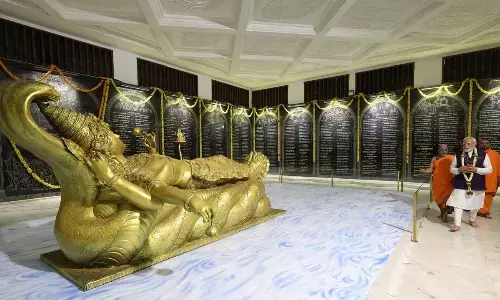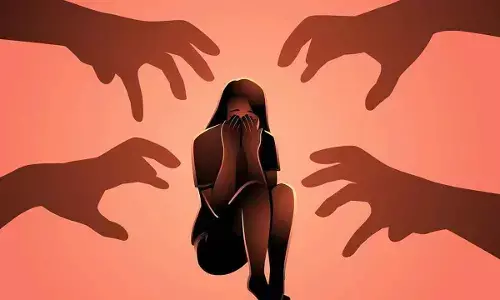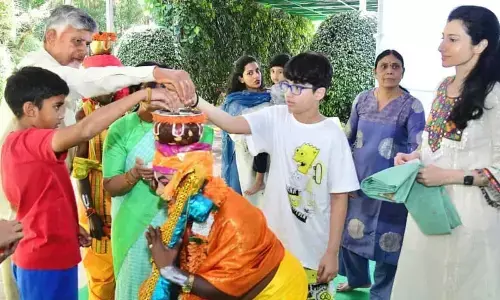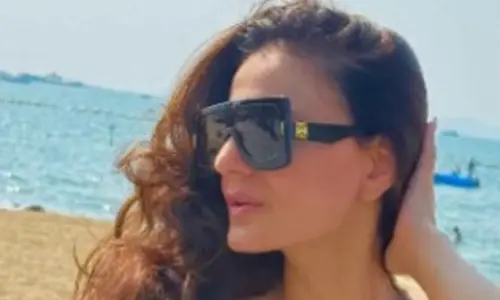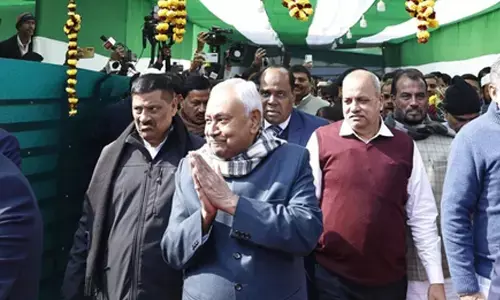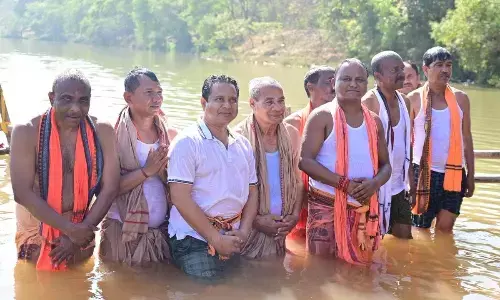Governance capsizes
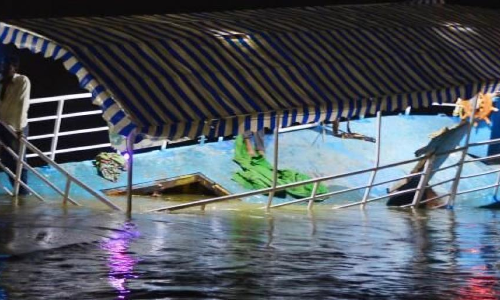
Assembly mourns the loss of life in the boat tragedy. The government declares ex-gratia to the families who lost their loved ones. A two-member committee comprising an IAS and an IPS officer has been appointed to suggest measures to prevent recurrence of such tragedies. Official inquiry will study the circumstances that led to the tragedy.
Assembly mourns the loss of life in the boat tragedy. The government declares ex-gratia to the families who lost their loved ones. A two-member committee comprising an IAS and an IPS officer has been appointed to suggest measures to prevent recurrence of such tragedies. Official inquiry will study the circumstances that led to the tragedy.
But, this autopsy squarely misses the abject failure of governance as this man-made disaster could have been completely avoided. The law-enforcing authorities may now fix the culpable homicide committed by the private boating company called River Boating Adventures. But, the criminal culpability of the authorities concerned seems to be not on the radar as it is politically unpalatable. The eerie silence on this crucial question is conspicuous.
The private boating company is not authorised to operate. Reports indicate that it was earlier prevented from taking tourists. But, somehow it could manage to operate. This cannot happen without the connivance of someone influential in the officialdom. The tourism department released a video clipping showing one of its officials telling the private boat operator ahead of the tragedy that the latter would not be allowed to dock the boat at Durga Ghat jetty because it had no permissions. However, the boat operator took it to Punnami Ghat side. The government departments are, of course, silent on why this boat operator was not prevented at Punnami Ghat too.
This is the age where technology can accurately account for even minute things on the earth and even explore the resources underneath the surface. But, the administration failed to notice an unauthorised boat accepting tourists. Yet, the government aspires to transform Amaravati into a global tourist destination. The river tourism is high on its plans.
The driver was inexperienced and untrained. Even adequate number of life jackets were not available on the boat. The driver had no knowledge of the river route; as a result, he failed to realise that there was sand bar on its way. All this reveals the complete lack of any perspective plan to promote river tourism. Such haphazard and unauthorised tourism is unbecoming of modern-day public administration.
The Sunday's Krishna river boat tragedy seems to be just not yet another accident. The Chief Minister speaking in the State Assembly attributed the accident solely to the human greed of the unauthorised private boat owner. The government seems to be unwilling to accept the failure of administration to ensure that the unauthorised boats which obviously lack safety precautions do not operate in the name of river tourism.
Reports indicate that this boat operator was not given permission to operate a passenger boat. The agency had applied for permission to operate small speed boats and water scooters but not a passenger boat. Notwithstanding this failure to enforce rule of law, unconfirmed media reports also indicate that the nepotism of a minister reportedly caused this tragedy as he intervened to enable the private boat operator to operate without any permits despite official objection.
However, the politician-business man-bureaucrat nexus cannot be probed by an officers committee unless a judicial inquiry is ordered. As the Minister for Information Technology, Nara Lokesh, said, a River Transport Authority needs to be constituted on the lines of Road Transport Authority as the government intends to promote goods and passenger traffic on waterways. But, this should have been done before innocent lives were lost. However, better late than never.
Suitable lessons need to be drawn from a number of similar disasters caused due to human failure or criminal negligence of those concerned. A boat carrying 78 tourists capsized in the Thekkady lake in Periyar Wildlife Sanctuary in October 2009. The mechanised boat of the Kerala Tourism Corporation could take a load of 70 people at a time. But there were 78 people on the boat at the time of the accident. Similarly, at least 20 people died when a boat packed with labourers capsized in the Yamuna in September 2017. The boat was crowded beyond its capacity.
Overloading of passengers is the reason for many such tragedies. The Krishna river boat tragedy also indicates this factor to be responsible for the accident. Thus, there should be monitoring and regulation of tourist boats to prevent overload-causing accidents. The proposed River Transport Authority will be better equipped to deal with this problem. At present, there seems to be chaos. Nobody knows who should regulate. Is it irrigation department or tourism department? River transport seems to be no one's baby.
Boat accidents are common in India, mainly because of overcrowding, poor maintenance and lax safety on ferries. In the case of Thekkady tragedy, reports indicate that when a herd of elephants was spotted, the tourists moved to one side of the boat to watch it, causing the boat to topple. In Sunday's incident too, the survivors’ accounts indicate that passengers had moved to one side of the boat. There should have been a guide to restrict movement of tourists on boat. No boat should be allowed to operate without a trained guide who knows the intricacies of travelling on river waters and the nuances of boat movements so that the passengers can be properly guided aboard the boat.
29 tourists drowned after a boat capsized in the famous Vembanad lake in Kerala in 2004 and none of them was wearing life jacket. Thus, availability of life jackets is a basic requirement. Even in the Krishna tragedy, this basic requirement was not met, resulting in more casualties. But, due to lack of disaster management consciousness and total absence of regulation, such basic and not-so-costly precautions are also not taken, which would have saved most of the lives. Disaster management approach should be inbuilt into every activity. A holistic approach is needed that focuses on disaster prevention, mitigation and preparedness rather than rescue and relief works alone.
The state government is contemplating a comprehensive policy to guide inland water transport management. Such a policy framework should include the measures suggested by India Disaster reports such as: The carrying capacities of the boats should be displayed prominently for information of the passengers; Checks should be carried out on the operation of all boats to ensure that they do not carry passengers exceeding their carrying capacity as overcrowding seems to be the predominant reasons for such disasters; The proposed River Transport Authority should ensure that there are adequate life jackets and life buoys in the boats; Ace swimmers should be posted on both sides of the river to immediately respond to a crisis situation; Check all boats for fitness to ply in water; Conduct periodic safety audits for all the boats that ply in different parts of the state; Ghat Managers should be posted at each Ghat.
They are to be equipped with mobile phones and other modern communication equipment; Special training programmes should be organised periodically for the crew; Departmental Boat Service should be a model for the lessees to emulate in these Ghats; Standard Operating Procedures (SOPs) should be prepared for normal operation and for meeting emergencies and other contingencies; The government should carry out a comprehensive review of the Safety Management System (SMS) being practised today on the river transport; and No boat should be allowed to ply without a trained guide.








